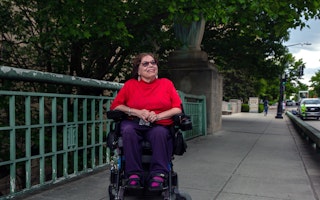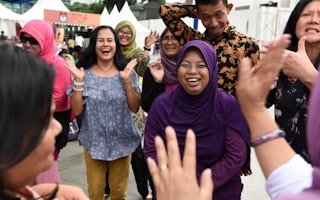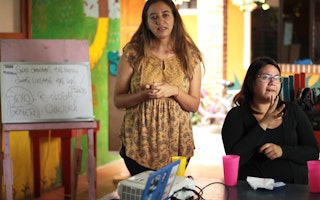A Question of Rights, Not Charity
By Lawrence Mute

Lawrence Mute is a Kenyan human rights lawyer and a member of the Open Society Foundations’ Human Rights Initiative advisory board. For nine years he was a commissioner with the Kenya National Commission on Human Rights.
I grew up a child of charity. I attended a school for the blind in Kenya set up by Catholic missionaries. My parents sent me there on the recommendation of a mission doctor. But the circumstances of my education were by chance. Had the missionaries not established a school for the blind, and had we not visited a mission hospital, I may not have received schooling.
For too long, when it comes to disability, charity has been the model—especially in Kenya. We cannot be in a situation where the Ministry of Education relies on the Lions Club to pay school fees. All children have a right to education. That’s the critical thing for people to understand. Whether the issue is education, or health care, or accessibility—it should be a question of rights, not charity. That’s why our work focuses on the human rights approach.
Until late last year, I was a Commissioner at the Kenya National Commission on Human Rights. The commission looks at the protection and promotion of all human rights for people living in Kenya—whether citizens or not. For many years we worked on issues of disability, but only in the last couple of years have we had a fully dedicated unit or program which focuses on issues of disability.
I have been within the disability sector in Kenya for quite a while. Following the adoption of the UN Convention on the Rights of Persons with Disabilities in 2006, concepts and norms which we use in respect to the issue of disability changed drastically—legal capacity, independent living, reasonable accommodation, etc. Finding people with the expertise and understanding of these new norms is not easy. In Kenya today when I want some work done on disability rights I can honestly say that there may be only a handful of people I can call on. It requires someone that has both local knowledge and also expertise on how the convention applies in our context. That’s why the Open Society Foundations’ disability rights scholarship program is so important. It is essential that we begin developing experts who understand what these new norms are all about.
When I look at Kenya, I believe real change will happen with better implementation. It isn’t too difficult to put the right policies in place. Yes, it can be hard, but it is not impossible. But once you have the right policies in place, then it’s a matter of execution. And that’s all about technical expertise—expertise that the scholarship program helps to create. Every time we negotiate a new convention, or write a new constitution that includes provisions covering issues of disability, we must ask ourselves, “How will this make a difference for rank and file people on the streets?” We must be careful not to make the mistake of insisting on one monolithic application of each norm, each standard, across the whole world.
A lot has changed in Kenya. When we have our next election in March, we will have people with disabilities in many different levels of government. That’s good news. But we still have a number of areas where we need more progress. For a long time we’ve worked on getting inclusive education. I would have hoped that by now there would be better clarity about how we can ensure that everyone in the country can access education. I don't think we have that.
Society needs to take account of all its people—not just the powerful, but also the weak. If you only look at the strongest you will undermine diversity, and that in turn undermines society. We must reach a point where we do not make assumptions about people because of a perceived disability. This is a discussion that the human rights discourse invites us to have.
Lawrence Mute is a lawyer and consultant on rights and governance.


